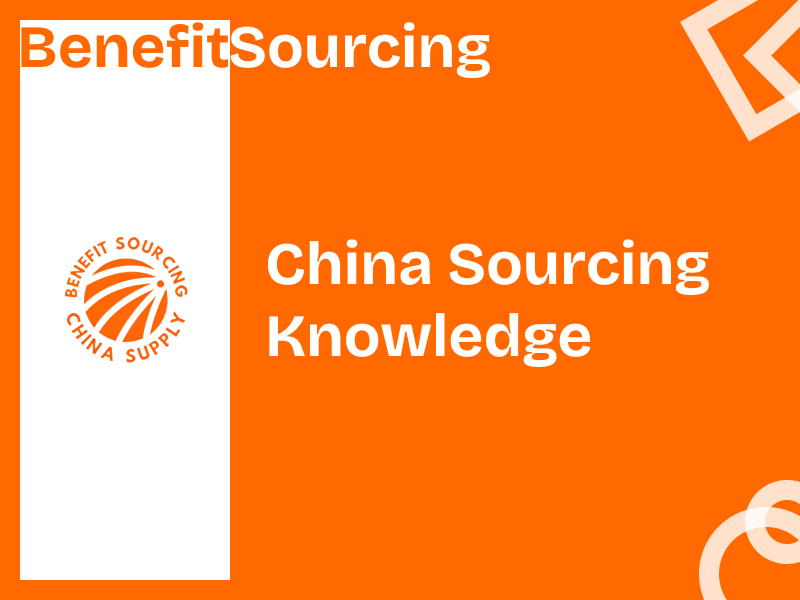The Importance of Term Sheets and Letters of Intent

When sourcing products from China, small-to-medium enterprises (SMEs), e-commerce sellers, and individual retailers often face unique challenges: language barriers, unfamiliar legal frameworks, and the risk of misunderstandings with suppliers. Two critical tools—term sheets and letters of intent (LOIs)—can help mitigate these risks while establishing a foundation for successful partnerships. Below, we explain why these documents matter and how to use them effectively in cross-border procurement.
What Are Term Sheets and Letters of Intent?
Term Sheets
A term sheet is a non-binding document outlining the key terms of a proposed transaction. It acts as a blueprint for negotiations, covering essentials such as:
- Pricing and payment terms (e.g., deposits, milestones, final payment)
- Minimum order quantities (MOQs)
- Product specifications and quality standards
- Delivery timelines and Incoterms (e.g., FOB, EXW, DDP)
- Intellectual property (IP) ownership
- Dispute resolution mechanisms
Letters of Intent (LOIs)
An LOI is a formal declaration of a buyer’s intention to proceed with a transaction, subject to final due diligence or contract signing. It typically includes:
- A commitment to negotiate in good faith
- Key commercial terms (price, volume, delivery)
- Confidentiality obligations
- Exclusivity clauses (if applicable)
- A timeline for finalizing a formal contract
While neither document is legally binding in most jurisdictions (unless specified), both serve as critical guardrails during early-stage supplier negotiations.
Why Term Sheets and LOIs Matter for Cross-Border Procurement
1. Clarify Expectations Upfront
Chinese suppliers often operate in fast-paced environments where assumptions about product details, timelines, or payment terms can lead to costly errors. A term sheet forces both parties to align on non-negotiable requirements before investing time or resources. For example:
- If you require ISO-certified manufacturing, specify this in the term sheet.
- If staggered payments are essential for cash flow, outline the schedule clearly.
Without this clarity, suppliers might prioritize larger clients or cut corners to meet ambiguous demands.
2. Build Trust with Professionalism
Many Chinese suppliers perceive international buyers—especially those with smaller orders—as high-risk due to payment defaults or order cancellations. Presenting a well-drafted LOI signals seriousness and professionalism, which can:
- Help you negotiate better pricing or MOQ flexibility.
- Encourage suppliers to allocate production capacity to your order.
- Reduce the likelihood of last-minute price hikes.
One Amazon FBA seller reported securing a 15% price reduction from a Guangdong-based factory simply by submitting an LOI with clear payment terms and projected order volumes.
3. Mitigate Legal and Financial Risks
While Chinese contract law recognizes LOIs and term sheets as preliminary agreements, their true value lies in creating accountability. For instance:
- An LOI with a confidentiality clause prevents suppliers from sharing your product designs with competitors.
- A term sheet specifying quality inspection protocols (e.g., third-party pre-shipment checks) ensures compliance.
In case of disputes, these documents provide evidence of mutually agreed terms, making it easier to resolve conflicts through platforms like the China International Economic and Trade Arbitration Commission (CIETAC).
4. Accelerate Contract Negotiations
Drafting a formal purchase agreement from scratch can take weeks, especially across languages and time zones. Term sheets simplify this process by identifying areas of alignment early. Suppliers are more likely to expedite contract reviews when key terms are already settled.
Practical Tips for Drafting and Negotiating Term Sheets & LOIs
-
Start with an LOI for High-Stakes Deals
Use an LOI when:- You’re requesting custom product modifications.
- The supplier requires exclusivity or large upfront deposits.
- You need to lock in pricing for a seasonal product.
Example clause:
“The Buyer agrees to source 5,000 units monthly for six months, subject to satisfactory quality inspection reports. The Supplier agrees to reserve production capacity and provide quarterly price stability.” -
Keep Term Sheets Concise but Comprehensive
Focus on the 5–10 most critical terms. Avoid overcomplicating the document with minor details better suited for contracts. Use tables for clarity:Term Buyer Requirement Supplier Obligation Payment 30% deposit, 70% before shipment Invoice issued within 3 days of order confirmation Delivery FOB Shenzhen, 45-day lead time Weekly production updates via email -
Address Cultural Nuances
- Avoid overly aggressive legal language, which Chinese suppliers may interpret as distrust. Frame terms collaboratively:
“Both parties agree to jointly ensure product quality through transparent communication.” - Use a bilingual template or hire a translator to minimize misinterpretations.
- Avoid overly aggressive legal language, which Chinese suppliers may interpret as distrust. Frame terms collaboratively:
-
Validate Supplier Credibility First
Before proposing an LOI:- Verify the supplier’s business license via platforms like Alibaba’s Supplier Verification Service.
- Request references from existing international clients.
- Conduct a video call to tour their facility.
-
Consult a Legal Expert
A lawyer familiar with Chinese commercial law can help you:- Identify unenforceable clauses.
- Add jurisdiction-specific safeguards (e.g., arbitration in Singapore).
- Convert term sheets into binding contracts when needed.
Common Pitfalls to Avoid
-
Assuming ‘Non-Binding’ Means Unimportant
Even non-binding documents set the tone for negotiations. Vague or unrealistic terms in an LOI can derail talks before they begin. -
Skipping Due Diligence
An LOI shouldn’t replace background checks. One retailer lost $20,000 after signing an LOI with a fraudulent “factory” that was actually a trading company. -
Overpromising Volumes
Overstating order quantities to secure better pricing may lead to penalties if you can’t meet commitments. Instead, negotiate tiered pricing based on actual sales performance.
By integrating term sheets and LOIs into your sourcing strategy, you’ll reduce risks, strengthen supplier relationships, and create a scalable framework for growth—even with limited procurement experience.
Need a sourcing agent in China?
Just send us your demand with the form below.